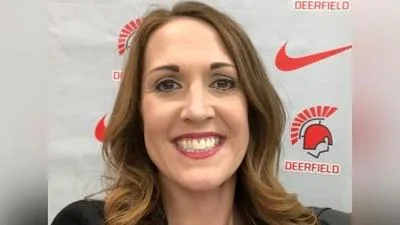Mary Cole is a candidate for Lake County State’s Attorney. | Mary Cole / Facebook
Mary Cole is a candidate for Lake County State’s Attorney. | Mary Cole / Facebook
Mary Cole, a candidate for Lake County State’s Attorney, noted in a recent Facebook post the Safe-T Act’s mst controversial policy was eneacted on Sept. 18. “The most controversial portion of the SAFE-T Act goes into effect across Illinois today. I have long called it the Catch and Release Act because law enforcement will be less able to detain accused criminals except in the most violent cases, making everyone in Lake County less safe,” Cole said. “Click the link to learn: *What is the SAFE-T/Catch & Release Act? *What does this mean for you? *Why State’s Attorney Race Has Never Been More Important *What You Can Do”
Under the law, judges will lose much of their authority to detain individuals charged with crimes, except in the most severe cases, leaving the decision largely to the state's attorney, Cole said in a post on her campaign website.
Cole noted this shift is particularly concerning when a county's state's attorney adopts a lenient approach to criminal justice, potentially resulting in the release of numerous individuals who may pose a risk to communities, exacerbating the already increasing crime rates in places like Lake County.
Cole’s opponent is Lake County State’s Attorney Eric Rinehart who infamously was only one of two of the state’s 102 state’s attorneys who supported the Safe-T Act. The Safe-T Act was initially ruled unconstitutional by a lower court but later the Illinois Supreme Court reinstated the so-called “catch and release” portion.
It was a landmark decision in which the state’s high court ruled the provision of the SAFE-T Act, which ends cash bail, as constitutional, making Illinois the first state to eliminate cash bail.
The 5-to-2 vote came after a six-month delay caused by legal challenges against the provision. Critics argued that the law restricts judges' discretion in detaining individuals.
Courts across the state had a two-month preparation period before the new bail rule took effect Sept. 18.
In the last election cycle Gov. J.B. Pritzker – who pushed the Safe-T Act – donated $2 million to two Illinois Supreme Court justices' campaigns, Mary O'Brien and Elizabeth Rochford, despite a law capping campaign contribution limits at $500,000.
“If we don’t have confidence in the opinions the judicial branch issues then our judicial branch is failing,” Chris Forsyth with the nonpartisan Judicial Integrity Project told Center Square.
“Political donations can lead to issues of judicial integrity and the United States Supreme Court has said so. In some cases they have found political donations to be so grave that there is a conflict of interest that is impermissible.”






 Alerts Sign-up
Alerts Sign-up